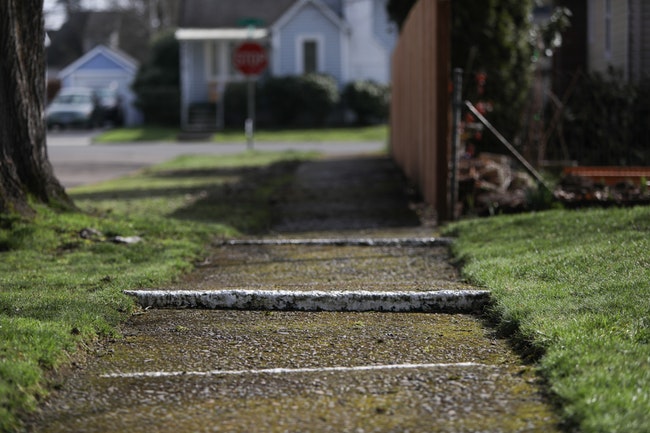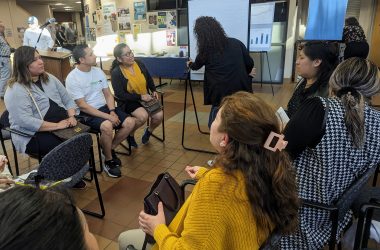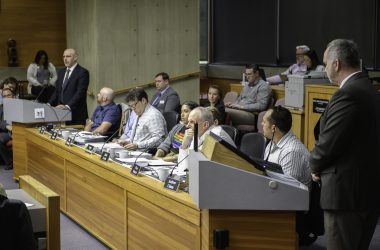Salem voters have likely approved a 10-year, $300 million plan for new fire trucks, better streets and sidewalks and improved parks. As of Wednesday evening, 64.39% of voters were in favor of the measure.
Marion and Polk county voters also leaned toward banning psilocybin manufacturing and service centers in unincorporated areas of the county.
The city bond measure will fund a decade-long infrastructure plan intended to make it easier for Salemites to drive, walk and bike around the city. It will also upgrade the Civic Center, pay for new trails, restrooms and other features at parks, and improve fire response times with the addition of new stations.
The measure will not raise taxes, because it is paid for by replacing older city bonds due to expire. Property owners would continue to pay $1.20 per $1,000 of assessed property value on city bonds — about $11.17 per month for a typical household.
The tally as of 5 p.m. Wednesday showed 31,037 Salem voters – 64.39% of counted ballots – supporting the measure.
As the ballots leaned toward its passage on Tuesday night, Mayor Chis Hoy said he was “cautiously optimistic,” but that there were still a lot of ballots to be counted.
“I’m excited about the infusion of cash, and I’m excited about some really important roads that we’re gonna be able to do some maintenance work on, some bike paths, Marine Drive over in West Salem, we’re gonna be able to build from scratch which is super exciting,” he said. “I’m really excited. Super excited about the affordable housing.”
After the bond passes, the next step will be for the Salem City Council to appoint an advisory board to determine the order of the projects and update the public on their progress, according to the city’s informational page on the project.
The city expects to spend $18.69 million of the bond by June 30, according to a staging plan city staff presented to the city council in August.
New fire equipment
Replacing Salem’s aging fire fleet is at the top of the list.
Salem’s fire engines have reached their life expectancy at 15 years old and over 450,000 miles on them, and according to the city repairs have become more costly and frequent.
“The existing fleet is dying. It’s costing us so much money to repair, and it really needed to be replaced,” Hoy said.
The new bond will fund the replacement of the department’s fleet of fire trucks and engines within the first few years at a total cost of $26 million.
On the wishlist is 17 fire engines, three new ladder trucks and a dozen specialized vehicles for things like grass fires and air support. The funding will also replace breathing equipment and tools, according to a recommended project list by the steering committee.
The majority of the first year of spending, $13 million, will go toward replacing fire vehicles, allowing the department to spend less on vehicle repairs.
Faster response times to emergency calls are also part of the plan, with an additional $14 million dollars of the bond planned to purchase property for and build two additional fire stations. The funding will not cover the operation of the stations, and on its website the city said it may explore existing properties and relocation as alternative options.
Streets and sidewalks
Over half the bond – $157 million – will go toward projects intended to make it easier for Salemites to get around the city.
That includes street repairs and some expansions, new pedestrian crossings, bicycle routes and bridge repair. The majority of the spending won’t come for several years.
Among the bond’s priorities are pedestrian crossings and bicycle routes, including new bike lanes on State Street, and a pedestrian walkway stretching from Willamette University to the Peter Courtney Minto Island Bridge in Riverfront Park.
The projects also aim to improve curb accessibility by installing more ADA accessible ramps and repairing uneven sidewalks.
Bicyclists will see more lanes and clearer safety markings around town, as well as expanded bike facilities on Northeast Union Street.
Two-thirds of city spending on streets and sidewalks will happen between 2026 and 2029, according to the city’s staging plan.
Bridges over Mill and Pringle creeks will also be strengthened.
West Salem will also get a new road, with $23 million planned for building a new two-lane street, Northwest Marine Drive, between Harritt Drive and Taybin Road.
City government infrastructure
City government offices will be better able to withstand an earthquake, with $39.5 million of the bond will go toward seismic upgrades at the Salem Civic Center, 555 Liberty St. S.E.
The majority of the center’s funding is planned for 2026 and 2027. In addition to better preparing the structures for earthquakes, the plan will replace skylights, windows and roofing.
The city hopes to better prepare for a cyber attack, and improve its ability to recover data with $17.6 million to replace city financial, storage and accounting systems.
Parks upgrades
Families with children and dogs will have more places to take the little ones for a day outdoors. The plan, which allocates $28.4 million to city parks, will upgrade play and exercise spaces throughout the city.
Seniors and people with disabilities will also have an easier time navigating some parks with paved trail improvements planned.
Ten parks will have their playground equipment replaced, and several will get new athletic courts, trails and dog parks.
Several parks, including Cascades Gateway and Northgate, will get improved bathrooms with funding dispersed this year through 2026.
Housing and libraries
The smallest portion of the bond will go toward developing low income housing, with $10 million dispersed in $1 million per year chunks to public and private developers.
An additional $7.5 million is planned to be used to buy two properties for branch libraries on the same sites as future affordable housing.
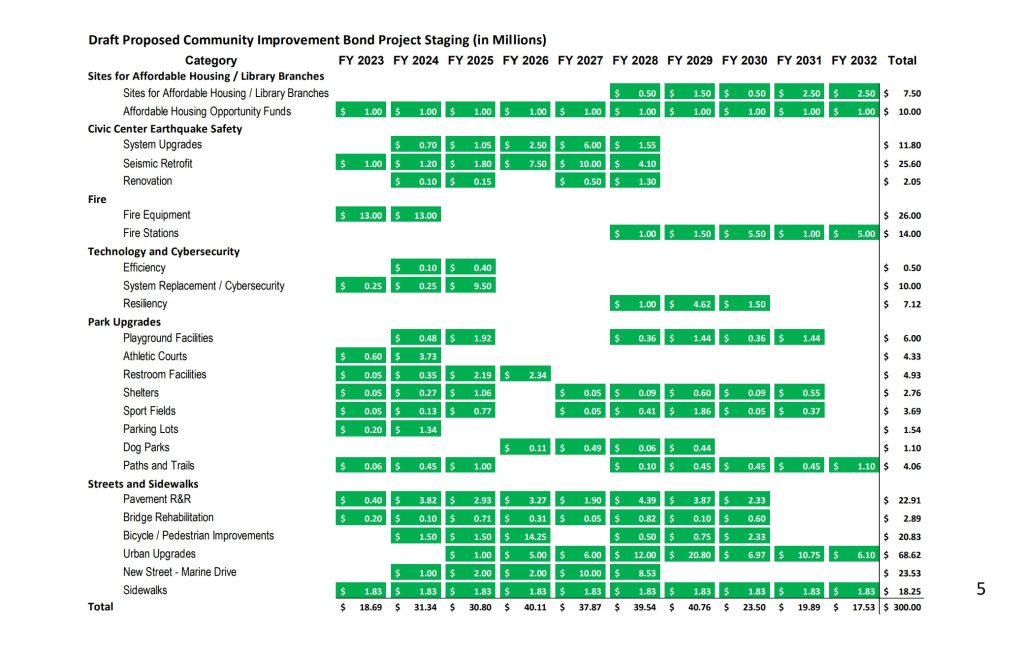
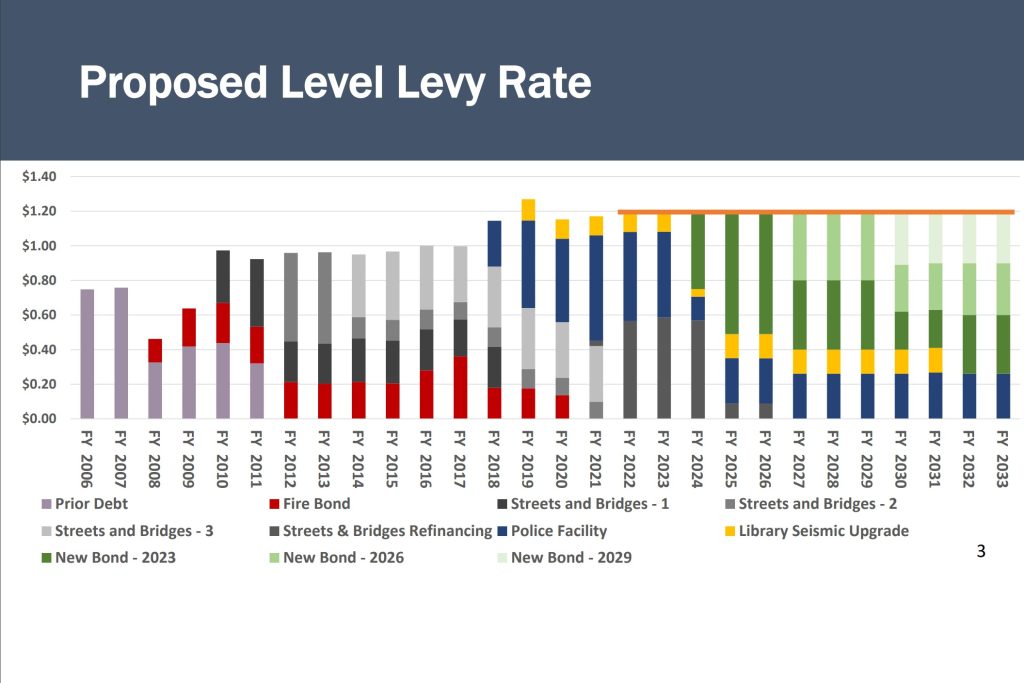
Psilocybin bans
Marion and Polk county voters also are favoring bans on psilocybin manufacturing and service centers in unincorporated areas of the county.
On Tuesday night, 58.20% of voters in Marion County as of 10 p.m. and 53.81% of voters in Polk County as of 8 p.m. favor the ban.
The votes were in response to state Measure 109, that legalized the manufacture of the active ingredient of “magic mushrooms,” which have recently shown to have an effect on depression and anxiety during clinical trials.
Contact reporter Abbey McDonald: [email protected] or 503-704-0355.
JUST THE FACTS, FOR SALEM – We report on your community with care and depth, fairness and accuracy. Get local news that matters to you. Subscribe to Salem Reporter. Click I want to subscribe!
Abbey McDonald joined the Salem Reporter in 2022. She previously worked as the business reporter at The Astorian, where she covered labor issues, health care and social services. A University of Oregon grad, she has also reported for the Malheur Enterprise, The News-Review and Willamette Week.

